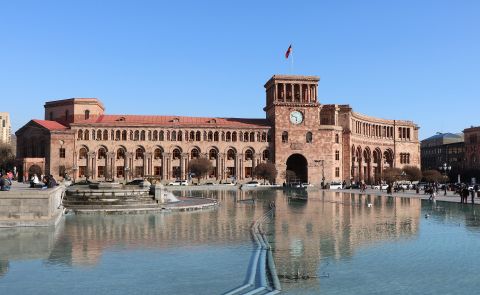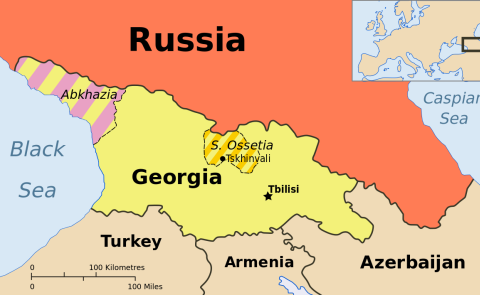
Twelfth day of the renewed Nagorno-Karabakh war
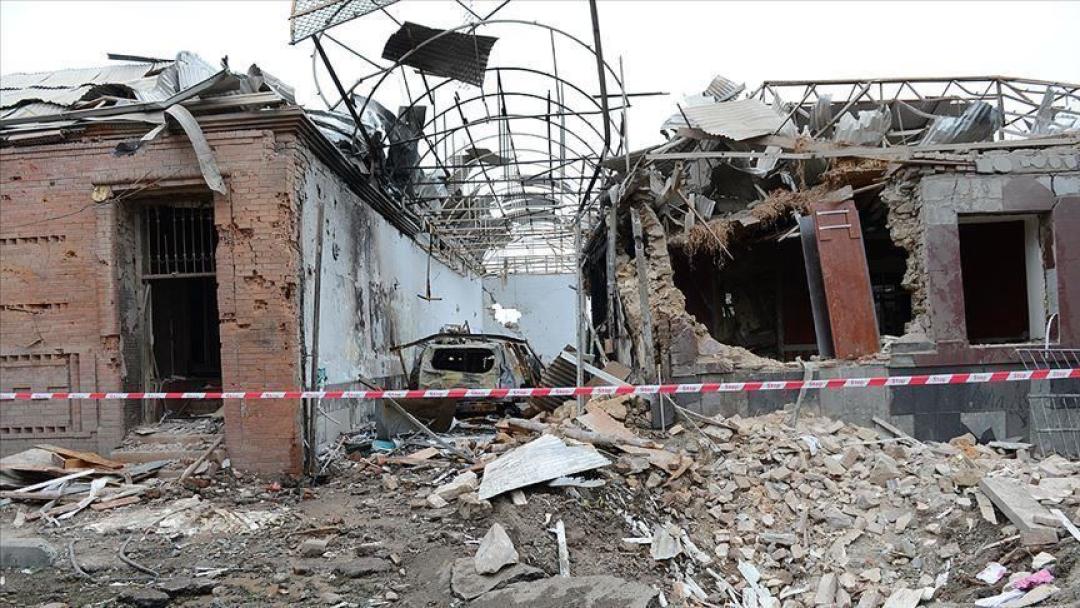
Military developments
On 8 October, the de-facto authorities of Nagorno-Karabakh reported that during the night, the situation did not change significantly and remained tense, but stable. “In some areas, shooting, rocket and artillery strikes continued. At present, hostilities have resumed in the northern and southern directions,” the report added.
It was also reported the Azerbaijani Armed Forces bombarded the Kazanchetsots Cathedral in Shusha. The Azerbaijani MOD responded by saying that the information about the destruction of the church had nothing to do with the hostilities.
According to the data of the MOD of Armenia, more than 320 Armenian servicemen were killed, and hundreds wounded on the Armenian side. Also 21 civilians were killed and 82 wounded on the Armenian side.
The Azerbaijani MOD reported that Armenian armed forces have been shelling the villages of Goranboy, Terter and Aghdam regions since the morning hours and that there are also dead and wounded. In addition, it was reported that the Armenian armed forces struck a blow with a Tochka-U tactical missile system on the territory of the Barda region.
Azerbaijan’s Prosecutor General reported that to this day 31 civilians were killed, 148 civilians severely injured, in general, 778 residential houses, 117 civilian facilities were destroyed.
Political developments
Armenia’s Prime Minister Nikol Pashinyan said in an interview with Euronews that the international community should take a decisive step and recognise the independence of Nagorno-Karabakh. In response to a question about whether the Armenian side is ready to cease fire, Pashinyan said: “Yes, of course, but you understand, this does not mean that we will stop, and they will come and subject our people to genocide. We didn't attack anyone. Our actions and those of Karabakh are exclusively self-defence. We did not intend and are not going to kill anyone. We have only one goal - the protection of the Armenian people from a new genocide.” The response of Azerbaijan’s President Ilham Aliyev was that a potential ceasefire needs to be a bilateral decision and not decided unilaterally.
At Pashinyan’s request, the Armenian President Armen Sarkissian dismissed Argishti Kyaramyan as head of the National Security Service and named Mikael Hambardzumyan as his successor without naming reasons for the dismissal. To note, Kyaramyan was appointed as the head of the service by the president’s decree on 8 June 2020.
The Speaker of the National Assembly of Armenia Ararat Mirzoyan called the for thechairpersons of parliaments in a number of European, Arab, Latin American countries, as well as to the heads of inter-parliamentary organisations, suggesting that immediate, concrete and effective measures be taken in regard to the conflict.
Azerbaijan’s Ministry of Foreign Affairs (MFA) responded to the statements given by Germany’s Foreign Minister Heiko Maas, who called for a ceasefire and put pressure on Azerbaijan. “Unfortunately, it should be noted that, despite Azerbaijan's repeated appeals to Germany as a member of the OSCE and the Minsk Group, Germany has not been particularly active in resolving the conflict. The EU-Azerbaijan Partnership Priorities document sets out the EU's support for Azerbaijan's territorial integrity and sovereignty. Germany, the EU's leading country, seems unaware of the document. Therefore, ceasefire calls must be accompanied by a plan for the withdrawal of Armenian troops from the occupied territories of Azerbaijan in accordance with the requirements of UN Security Council Resolution 853. Only then can the ceasefire become a lasting peace. We emphasize that the Armed Forces of Azerbaijan is carrying out counter-attacks on its territory in response to the Armenian aggression,“ read the statement of Azerbaijan’s MFA.
International reactions
The negotiations of the OSCE Minsk Group co-chairs with Azerbaijan’s Foreign Minister Jehyun Bayramov regarding Nagorno-Karabakh conflict have started in Geneva. “The aim of Bayramov’s visit is to meet with co-chairs of the OSCE Minsk Group and get Azerbaijan’s position on the conflict settlement across to the opposing side," read the statement from Azerbaijan’s MFA. It was also highlighted that the meeting is taking place outside the UN, in a secret place and in a closed format.
The spokesperson of Russia’s MFA Maria Zakharova said that Armenia’s Foreign Minister Zohrab Mnatsakanyan would be in Moscow on 11-13 October and would discuss the situation in the Karabakh conflict zone with his Russian counterpart Sergey Lavrov. “Russia, both in its national capacity and within the framework of the OSCE Minsk Group, is consistently making every possible effort aimed at an immediate ceasefire and creating conditions for the resumption of the negotiation process,” Zakharova said. She stressed that the bilateral relations between Armenia and Russia are of an allied nature, and Moscow hopes that the visit of the Armenian Foreign Minister to Moscow “will contribute to strengthening stability and security in the Transcaucasus.”
See Also

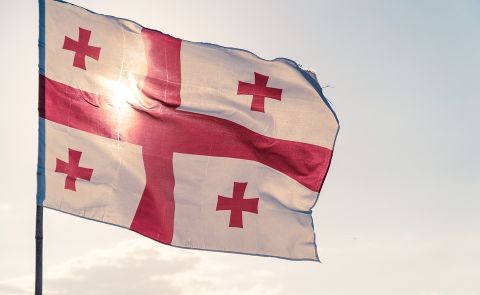
Georgian Bishop Accuses Government Official of Plotting Assassination; Opposition Leader Alleges Husband’s Abduction
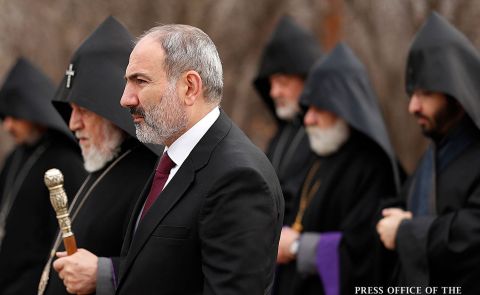
Armenian Government and Church Face Growing Tensions Over Leadership Allegations
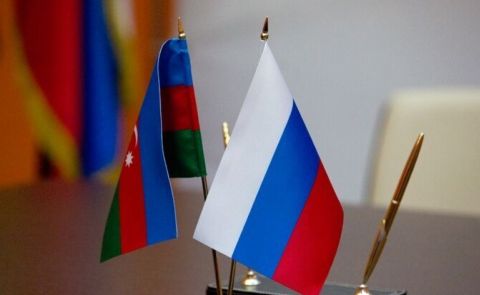
Tensions Rise Between Russia and Azerbaijan Over Medinsky’s Ukraine Conflict and Karabakh Remarks
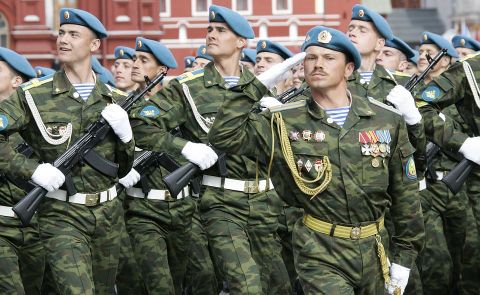
Chechen Official Outlines Conscription Rules for Russia-Ukraine War
